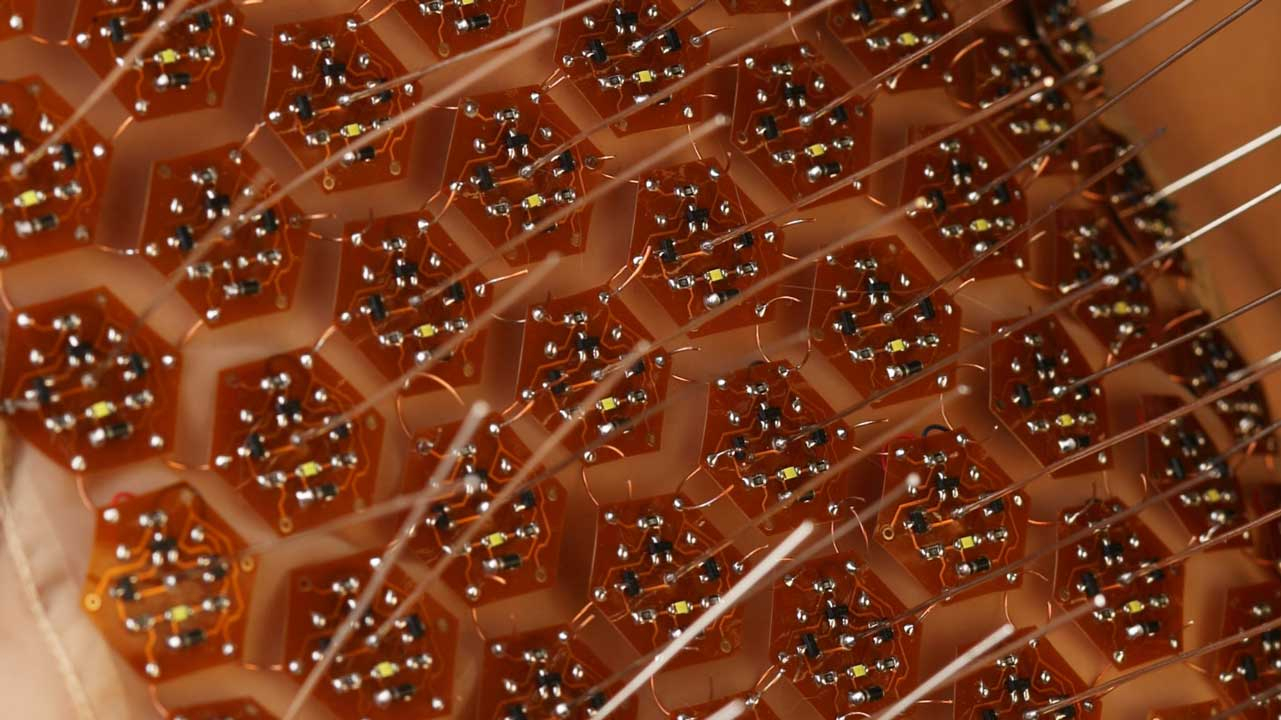

Technology – in the form of smartphones and computers, facial recognition, artificial intelligence, and countless other applications – is transforming the way people live. But how will the relationship between humans and technology evolve? One person examining this question is artist Vivian Xu, the inventor of a high-tech product called "electric skin."
Xu is at the forefront of a movement to incorporate science and technology into art. She uses electric skin in manufacturing clothing that picks up electromagnetic signals in the environment and translates them into vibrations. It's an artistic experiment that Vivian sees as complementing our innate five senses of hearing, smell, taste, touch and vision.
Yet, her electric skin has no practical application. Xu simply enjoys embracing technology in her art, calling herself an "optimist with technology."

The Electric Skin, by Vivian Xu. /Screenshot from Dogma Lab
"It excites me, some of the possibilities that we are heading in with biotechnology, AI, computers," she said.
She believes that people have, for too long, been overly "homocentric"; in other words, that we've had too narrow a view of the world around us. "What's more interesting," she said, "is the non-humanistic view of what things are, that can provide a sort of alien perspective and that might be scary to some people but also it might be very exciting."
Xu is well aware that there are people who do not share her enthusiasm for technology.
"I understand that some people have a sort of fear from technology or of machines invading our humanity," she said. "But I also feel like humanity's definition evolves with the times."
People may need to do more than simply embrace technology, Xu argued.
"We live in an environment that is constantly changing," she said. "And as animals ourselves we should be adapting to the environment."
In other words, we need to accept that technology is changing us, to the extent that, "maybe it's time to redefine what humanity is."

Copyright © 2018 CGTN. Beijing ICP prepared NO.16065310-3
Copyright © 2018 CGTN. Beijing ICP prepared NO.16065310-3